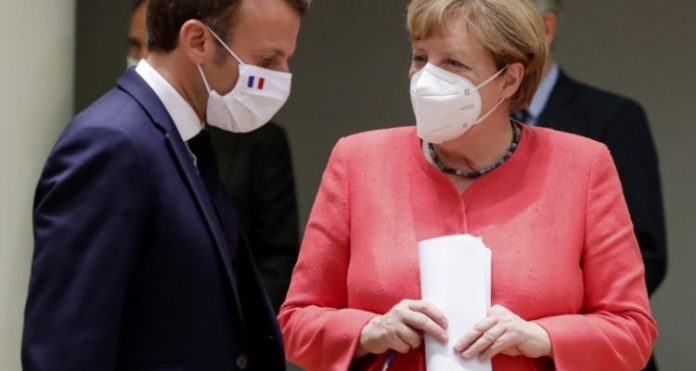

The news last week from the Middle East was electrifying. Indeed, it was nothing less than historic and transformational. The United Arab Emirates (UAE) and Israel reached a peace deal. And the broker was the Trump administration.
How could this happen, many Europeans asked?
How could a “right-wing” Israeli prime minister, who had presumably alienated the entire Arab world by talk of “annexation” of parts of the disputed West Bank, have pulled this off?
How could a small Arab country — which, unlike Egypt and Jordan, had no territorial disputes with Israel to resolve — have broken with decades of sacred dogma in the region by recognizing Israel before the Palestinian issue was resolved?
And how could an American leader, so maligned in Europe and so dismissed as lacking any diplomatic savoir-faire, have spearheaded the first peace deal with Israel since 1994?
The answer lies in the region’s changing dynamics, which, alas, too many European leaders from Paris to Berlin to Brussels have failed to grasp.
First, there is Iran. For the Sunni Arab world and Israel, this threat from Tehran and its proxies, including Hezbollah, dominates strategic thinking.
No, the Palestinian issue is not at the core of the Middle East’s challenges — a refrain I’ve heard dozens of times in some European capitals. It is Iran and its hegemonic ambitions, currently being played out in Iraq, Syria, Lebanon, Yemen, and Gaza, not to mention its focus on Bahrain, Saudi Arabia, and others. Indeed, even distant Morocco cut its ties with Iran in 2018 due to destabilizing interference.
When the Obama administration, France, Germany, and the United Kingdom, joined by the European Union, pressed ahead with the Iran nuclear deal in 2015, over the objections of many in Iran’s neighborhood, they practically guaranteed a new relationship between Israel and Sunni Arab countries.
After all, if Washington could no longer be relied on to protect the Gulf countries, and Europe even less so, who could fill the vacuum? Who had the three essential assets — political will, military capability, and actionable intelligence? Israel, of course. Meanwhile, Jerusalem wanted nothing less than a new era in relations with these same countries, starting with Bahrain, Oman, Saudi Arabia, and the UAE.
Second, together with a growing sense that Israel is a vital strategic partner came the realization that the Start0up Nation Israel had a great deal of know-how and products to offer — from food security to cyber-security, from technology to counter-terrorism, from water management to investment, from agriculture to medical break-throughs.
Yet, for decades it was the Palestinians who drove the Arab train when it came to Israel. No longer. Impatience with the Palestinians and their political dysfunction has grown in recent years, driven by a realization that every Israeli offer for a deal has been spurned or ignored by Palestinian leaders in the past 20 years, if not longer.
So why continue to be held hostage to Palestinian leaders unwilling to say “yes” to a two-state agreement, when Israel has so much to offer and the regional stakes are so high?
And in any case, perhaps it is enlightened Arab leaders who can talk sense to the Palestinians, and even change the Israeli calculus on such issues as annexation and, ultimately, even a peace accord, since the reverse Palestinian-led course has led nowhere.
And third, if Europe, unlike the U.S. today, wants to continue to insist that the Palestinian issue is front and center to an understanding of Middle East dynamics, that the Palestinian record of rejectionism is essentially irrelevant, that Iran can be managed from Brussels, or, by the way, that Hezbollah can be divided into fictitious “military” and “political” wings, as the EU indefensibly did in 2013 at French insistence, then it will continue to be sidelined, while a new balance of forces emerges in the Middle East.
Europe has much to offer, most especially its remarkable experience of postwar peace-building and integration that today is the EU, despite all its flaws. It could perhaps one day serve as a model for other regions with a long history of conflict and animosity.
But that won’t happen unless Europe sheds some of its totally outdated thinking about the Middle East; acknowledges and embraces the new dynamics at work as reflected in the UAE-Israel deal (and others to follow?); takes a fresh look at its own complex relationship with (and some biased views on) Israel; and ends its undemanding, often forgiving, “low expectations” policy toward the Palestinians.
As Europe’s most powerful and influential country, and the current holder of the EU Presidency, Germany is in a unique position to show leadership, vision, and courage. If
not now, when?
(David Harris – World Israel News / Algemeiner).





